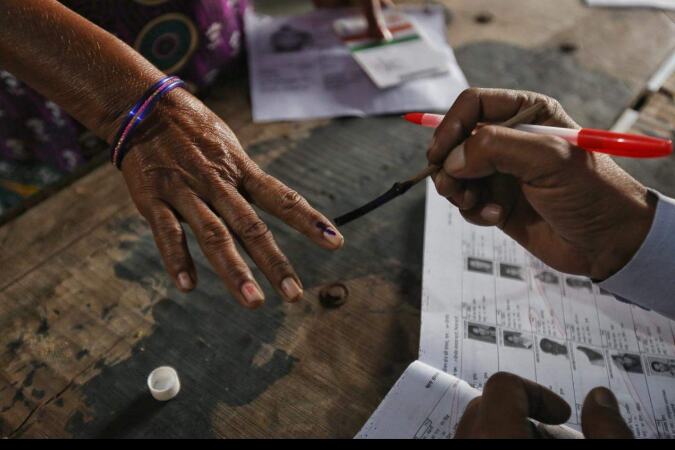Changing scenario
Growing influence of money and propaganda in TN elections can be challenged by a third front comprising of smaller parties

Who wins and with what margin in the election and which party forms the government will not determine the quality of electoral democracy but how honestly the election is being approached by the political parties decides the nature of democracy. First time in Independent India, Tamil Nadu witnessed a general election to the Legislative Assembly without the presence of the dominant and charismatic leaders and without a meaningful and ideological discourse in the electoral campaign to draw the attention of the citizens. It is also a new phenomenon first of its kind in the election that the dominant political parties have spent an unimaginably very high amount in the election campaign and for voters. Media both print and electronic have been used by investing huge money for propaganda without knowing the fact that an important organ of democracy is being weakened. Social media is yet another dominant force in the electoral campaign spreading all kinds of fabricated stories about parties, leaders and candidates. The leaders have concluded that unless money is being used, bringing the voters from the poor section of the society to the polling station is very difficult. In such a way, an electoral campaign has been conducted. Incentivising voters by the political parties by giving cash the democracy is being maligned.
While listening to the speeches of the leaders of the political parties and the advertisement given in the newspapers about the deeds and misdeeds of each other, one would easily conclude that it is the most corrupt state in the country. It is being substantiated through the spending of money by the parties in the campaign and for voters. While going through the speeches of the leaders of the parties in the election campaign one can easily assume that Tamil Nadu political culture is moving towards parochial and anti-democratic. Yet while analyzing the development trajectory it is one of the economically and socially developed states in India. While objectively analyzing the governance process it is always a pro-poor state. This brings to a conclusion that the state has carried out more number of development schemes and programmes with the higher outlay and thereby the possibility of rent-seeking is higher. Even in rent-seeking, the amount involved is also high. It is also a known fact that not only the parties which are in power indulge in corruption but also the opposition and the bureaucracy are part of the process. And as a result, corruption has been regularized and made a non-factor. Having understood the whole process of rent-seeking, even the party cadres expect money for every work done by them for the party and even to attend the party meetings.
Slowly it has entrenched into the minds of the voters. Through this process, the political parties have brought a culture among the poor that they will come to polling stations if they are paid otherwise they will not vote. A new culture has been developed among the poor voters to demand money from the candidates who have not given money. In such a way our democracy has been maligned. Development took place in Tamil Nadu by these parties who were in power but not in ethical means. One would wonder how these parties have managed such a huge corpus to do costly politics and bring party men and women and voters for winning elections. The dominant parties and party leaders at different levels spent huge amounts for political events without getting a single rupee either from the cadres or from the general public. As a result, parties are being run on corrupt money and the money drawn from the corporate houses. In such a way the political parties have brought our democracy.
At this juncture, one has to ask is it a democracy? Is it the way the parties have to run? Is it the way the election has to be faced? Certainly, it is not a democracy we wanted as per the constitution. It is politics meant for party men and women, not for the public. Certain public goods are being distributed beyond that dignified welfare of the people is not taken care of. It is to be changed. A new course of politics has to be evolved and for which a new leader has to emerge or a new group of small parties have to join together and take initiative to mobilize youth through powerful media and to reach out to the masses. Even today there is an opportunity for the third front. It is to be used collectively and not by declaring that 'I will be the Chief Minister' during the election. 1.4 crores of youth will decide the fate of the political parties in this election.
To change the course of politics, leaders and groups who want an alternative have to be united and evolve programmes and framework and work against the binary politics of the Dravidian parties and for which, we need collective leadership coupled with a strong agenda for transformation and that is the need of the hour.
The writer is a former Professor and Rajiv Gandhi Chair for Panchayati Raj Studies, Gandhigram Rural Institute. Views expressed are personal



